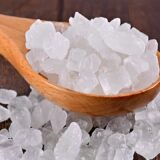Ayurvedic Weight Loss Diet for Women: A Holistic Approach
Ayurveda, the ancient holistic healing system of India, focuses on restoring balance within the body, mind, and spirit. One of the core principles of Ayurveda is that each individual has a unique constitution, or Prakriti, based on three fundamental energies, or doshas: Vata (air), Pitta (fire), and Kapha (earth and water).
These doshas are responsible for various functions within the body, including digestion, metabolism, and fat accumulation. Weight gain, especially in women, is often the result of an imbalance in these doshas, and the Ayurvedic approach to weight loss seeks to restore balance in a sustainable, gradual manner, avoiding extreme diets or stress on the body.
Understanding Ayurvedic Diet for Women
Ayurveda offers a personalized approach to weight loss, emphasizing that what works for one person may not work for another due to individual differences in doshas.
For women, an Ayurvedic diet is not just about shedding pounds, but about bringing harmony to the body and addressing the root causes of weight gain.
This holistic approach recognizes that weight loss should be gradual and natural, honoring the body’s inherent constitution while also addressing imbalances.
The Role of Doshas in Weight Gain
In Ayurveda, the balance or imbalance of the three doshas plays a critical role in how the body processes food, stores fat, and maintains a healthy weight. For women, the dosha that predominates in their constitution, or Prakriti, will significantly influence their approach to diet and weight loss.
1. Vata Dosha and Weight Loss
Constitution: Vata types are generally thin, with low body fat and muscle mass. They tend to experience fluctuating appetites and digestion, and they may find it hard to gain or maintain weight. However, Vata women can still struggle with weight if their dosha becomes imbalanced.
Imbalance and Weight Gain: When Vata becomes aggravated, it can cause irregular digestion and fluctuating appetite, leading to overeating or emotional eating. Weight gain may occur due to poor digestion or the inability to properly metabolize food.
Dietary Recommendations: Women with a Vata constitution should focus on warm, nourishing, and grounding foods that stabilize digestion. Sweet, sour, and salty flavors help calm Vata, and incorporating warming spices like ginger, cinnamon, and cumin can support metabolism and digestive health.
2. Pitta Dosha and Weight Loss
Constitution: Pitta types tend to have a moderate build, with a strong appetite and excellent digestion. They are more likely to experience weight gain due to overeating or stress, as their metabolism is fast, but they may also have a tendency to overindulge in food, particularly during stressful times.
Imbalance and Weight Gain: When Pitta is imbalanced, women may crave excessive amounts of food, especially spicy, oily, or rich foods. Stress and emotional turmoil can also contribute to overeating and unhealthy weight gain.
Dietary Recommendations: Women with a Pitta constitution should focus on cooling, soothing, and hydrating foods. Bitter, sweet, and astringent flavors help balance Pitta while cooling foods like cucumbers, leafy greens, and dairy can help maintain digestive balance and prevent inflammation.
3. Kapha Dosha and Weight Loss
Constitution: Kapha types are naturally more prone to weight gain. They tend to have a larger, more solid build with a slow metabolism and stable appetite. Kapha women often have a tendency to store excess weight, especially around the midsection and thighs.
Imbalance and Weight Gain: When Kapha is aggravated, it leads to sluggish digestion, fluid retention, and an overall tendency to accumulate fat. Kapha women are especially prone to overeating when stressed or bored, and their slow metabolism can cause weight to build up over time.
Dietary Recommendations: To support weight loss, Kapha women should focus on light, dry, and stimulating foods. Bitter, spicy, and astringent flavors help balance Kapha, and eating foods that are easy to digest, such as soups, salads, and steamed vegetables, is beneficial. Avoiding heavy, oily, and sweet foods is key to reducing excess weight.
Top 5 Herbs for Weight Loss for Women
1. Guggul (Commiphora wightii)
Guggul is a powerful herb known for its ability to support weight loss by boosting metabolism and promoting fat burning. It helps in balancing cholesterol levels and supports healthy thyroid function, which is essential for weight management.
- Rasa (taste): Bitter, pungent.
- Virya (actions): Warming.
- Vipak (taste after digestion): Pungent.
- Effect on doshas: Balances Kapha and Vata, may increase Pitta.
Benefits:
- Boosts metabolism and fat burning.
- Supports thyroid function.
- Reduces cholesterol levels.
- Improves energy levels and stamina.
How to use: Guggul can be taken in supplement form or as part of Ayurvedic formulations. Always consult a professional for the right dosage.
2. Triphala (Amla, Haritaki, Bibhitaki)
Triphala is a renowned Ayurvedic herb that detoxifies and supports digestion, helping in weight loss. It cleanses the system, reduces bloating, and enhances metabolism.
- Rasa (taste): Sour, bitter, astringent.
- Virya (actions): Cooling.
- Vipak (taste after digestion): Astringent.
- Effect on doshas: Balances all doshas, particularly Pitta and Kapha.
Benefits:
- Detoxifies and improves digestion.
- Boosts metabolism and supports weight loss.
- Reduces bloating and constipation.
- Balances blood sugar levels.
How to use: Triphala can be consumed as powder mixed with warm water or as a tablet supplement before bedtime.
3. Ashwagandha (Withania somnifera)
Ashwagandha is an adaptogenic herb that helps to manage stress, which is often a major contributor to weight gain. It supports hormonal balance and boosts energy, helping with overall weight management.
- Rasa (taste): Bitter, astringent, sweet.
- Virya (actions): Warming.
- Vipak (taste after digestion): Sweet.
- Effect on doshas: Balances Vata and Kapha, may increase Pitta.
Benefits:
- Reduces stress and cortisol levels.
- Supports hormonal balance and metabolism.
- Enhances stamina and energy.
- Improves sleep and overall vitality.
How to use: Ashwagandha is available in powder, capsule, or liquid extract form. It can be added to warm milk or smoothies.
4. Fenugreek (Trigonella foenum-graecum)
Fenugreek seeds are known for their high fiber content, which helps in controlling appetite and managing blood sugar levels. It also supports healthy digestion, making it an excellent herb for weight management.
- Rasa (taste): Bitter, sweet.
- Virya (actions): Warming.
- Vipak (taste after digestion): Sweet.
- Effect on doshas: Balances Kapha and Vata, can increase Pitta.
Benefits:
- Controls appetite and reduces cravings.
- Regulates blood sugar levels.
- Supports digestion and nutrient absorption.
- Promotes healthy metabolism.
How to use: Fenugreek can be used as a powder in smoothies, sprinkled on dishes, or steeped in hot water as a tea.
5. Ginger (Zingiber officinale)
Ginger is widely known for its ability to improve digestion and boost metabolism. It stimulates digestive enzymes, reduces bloating, and helps curb appetite, making it an excellent herb for weight loss.
- Rasa (taste): Spicy, sweet.
- Virya (actions): Warming.
- Vipak (taste after digestion): Sweet.
- Effect on doshas: Balances all doshas, particularly Vata and Kapha, may increase Pitta.
Benefits:
- Boosts metabolism and digestive fire.
- Reduces bloating and indigestion.
- Curbs appetite and cravings.
- Increases nutrient absorption.
How to use: Fresh ginger can be consumed in tea, grated into dishes, or chewed on its own. Ginger powder can also be added to warm water or smoothies.
Ayurvedic Diet Principles for Weight Loss
An Ayurvedic diet for women focuses on achieving long-term balance rather than quick fixes. By aligning eating habits with the rhythms of nature, Ayurvedic nutrition helps women lose weight in a healthy and sustainable way. Here are some key principles to follow for weight loss:
1. Focus on Whole, Fresh, and Plant-Based Foods
- Eat fresh, whole foods: Ayurveda emphasizes the importance of fresh, seasonal, and organic foods that are easy to digest. Plant-based foods such as fruits, vegetables, whole grains, legumes, and nuts provide the essential nutrients for maintaining a healthy body and aiding in weight loss.
- Reduce processed foods: Avoiding processed foods, sugar-laden snacks, and refined grains is crucial for maintaining a healthy metabolism and avoiding weight gain.
2. Mindful Eating Practices
- Focus on eating: Ayurveda recommends eating mindfully without distractions. Avoid watching TV or reading while eating. This practice allows you to fully enjoy your meal and become more aware of your body’s hunger and satiety signals.
- Eat at regular times: Consistency is key in Ayurveda. Plan meals at the same time each day to maintain a balanced rhythm and digestion.
- Sit while eating: Always sit down at the table to eat and take the time to chew each bite thoroughly. This promotes proper digestion and helps the body absorb nutrients effectively.
3. Timing and Portion Control
- Main meal at noon: According to Ayurveda, the digestive fire (agni) is strongest around noon, making it the best time for a larger meal. This allows the body to effectively process and absorb nutrients.
- Eat in moderation: Avoid overeating. It’s recommended to leave the table with a slight feeling of hunger, as this helps maintain a healthy metabolic rate and prevents overburdening the digestive system.
- Avoid snacking: Snacking between meals should be minimized to allow the body to rest and fully digest the previous meal. This is particularly important for women looking to lose weight.
4. Avoid Drinking During Meals
- Drink liquids before or after meals: Ayurveda suggests avoiding water, tea, or coffee during meals, as it can dilute digestive juices and impair digestion. Drink liquids about 30 minutes before or after eating to optimize digestion.
Signs of Poor Digestion and How to Address Them
In Ayurveda, proper digestion is crucial for maintaining a healthy weight. When digestion is weak or imbalanced, it leads to the accumulation of toxins (ama) and undigested food in the body, which can contribute to weight gain and other health issues.
- Variable digestion (Vata imbalance): If digestion is irregular, it may lead to bloating, gas, and discomfort. Women should focus on stabilizing digestion with warm, cooked foods and grounding spices.
- Strong digestion (Pitta imbalance): Excessive digestion can lead to burning sensations, acidity, or heartburn. Cooling foods and herbal teas such as mint or chamomile can help soothe the digestive system.
- Weak digestion (Kapha imbalance): If digestion is slow, women may experience heaviness, nausea, or water retention. Light, warm foods and stimulating spices like ginger and black pepper can enhance digestion.
FAQs
What is Ayurveda, and how does it relate to weight loss for women?
Ayurveda focuses on balancing the doshas to support digestion, metabolism, and overall health, promoting sustainable weight loss through personalized diets based on your constitution.
How does Ayurveda determine the best diet for weight loss?
Ayurveda recommends diets based on your dosha type, balancing food to restore harmony, improve digestion, and support metabolism, allowing for gradual, sustainable weight loss.
How can I determine my dosha type for weight loss?
Your dosha type can be determined by physical traits, emotions, and digestion. An Ayurvedic practitioner can assess your constitution and imbalances to create a personalized plan.
Is Ayurveda effective for weight loss after 40 or 50 years?
Yes, Ayurveda offers a gentle, balanced approach to weight loss suitable for any age, focusing on restoring digestive harmony and supporting overall health, especially for women over 40.
Can I lose weight with Ayurveda without counting calories?
Yes, Ayurveda focuses on mindful eating, digestion, and balance rather than calorie counting, making weight loss natural and sustainable without restrictive diets or extreme measures.
What are the key Ayurvedic dietary principles for weight loss?
Key principles include eating fresh, whole foods, eating mindfully, timing meals, and portion control, tailored to your dosha type for effective and gradual weight loss.
How long does it take to see weight loss results with an Ayurvedic diet?
Results vary, but with consistent dietary and lifestyle changes, you may see gradual improvements in digestion, energy, and weight loss within a few weeks to months.
Is there any specific exercise recommended for weight loss in Ayurveda?
Ayurveda recommends exercises based on your dosha: gentle activities for Vata, moderate exercises for Pitta, and invigorating workouts for Kapha, focusing on consistency over intensity for weight loss.
Can Ayurveda help with other health concerns besides weight loss?
Yes, Ayurveda addresses various health issues like stress, digestion, skin problems, and hormone imbalances, improving overall well-being by restoring balance within the body and mind.
Do I need to take Ayurvedic supplements to lose weight?
Supplements are optional in Ayurveda. A balanced diet and lifestyle are the main focus, though herbs like Triphala or Turmeric can support digestion and metabolism when needed.
Ayurvedic weight loss for women is about achieving harmony within the body and mind. By following a diet that supports your constitution and aligns with Ayurvedic principles, you can gradually lose weight while promoting overall well-being.

























